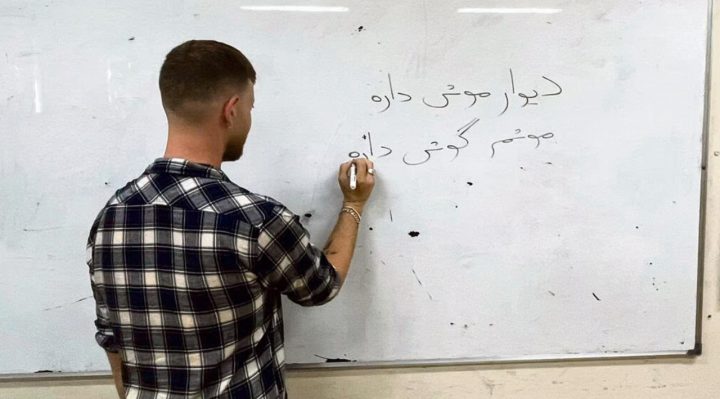With New Multilingual Espionage Program, Mossad Targets Middle East, Asia

With Multilingual Espionage Program, Social Media and Big Tech Aiding Mossad in Cross-Border Intelligence Ops
In a bid to expand its intelligence network across the Middle East and Asia, Israel’s spy agency Mossad is intensifying its linguistic and cultural training programs, under its multilingual espionage program. Zionist agents are being groomed to become experts in Arabic, Persian, Urdu, and Afghan dialects, as part of a wider strategy to infiltrate and influence opposing nations.
Social networking platforms are being used to trap citizens of rival countries, with support from tech giants Google and Microsoft.

Israel’s Mossad intelligence agency, known globally for its unconventional tactics, has accelerated recruitment efforts to maintain influence in the Middle East. These developments come as a large-scale operation has been launched against Mossad agents in Iran, where the agency is believed to have played a role in the assassination of senior military commanders and scientists.
In response, specialized training has been introduced at Mossad’s headquarters. Agents undergo two years of intensive instruction in language and psychological operations, aimed at influencing and manipulating key figures in adversary nations. Fluency in Persian, Urdu, Afghan and Arabic dialects has been made mandatory.
According to Hebrew media, newly recruited agents are being activated across social platforms like Facebook, Twitter, Instagram, and WhatsApp, to engage and lure individuals from targeted countries. It is claimed that Google and Microsoft are cooperating—directly or indirectly—in supporting these intelligence operations.

The program is being overseen by Mossad chief David Barnea and CIA Director John Lee Ratcliffe. After the October 7, 2023 Hamas attack, Israel began rigorous military courses for high school graduates, including intensive language training in Yemeni, Persian, Pashto, Dari, Urdu and Arabic dialects.
This training is conducted under the supervision of Aman, Israel’s military intelligence directorate, as part of the reforms following the October 7 incident. According to the Hebrew-language daily Yedioth Ahronoth, Aman’s language school operates 35 branches across Israel. The curriculum includes various Arabic dialects—such as Syrian, Palestinian, Iraqi, and Bedouin—alongside Urdu, Yemeni, and Afghan languages, which were added to the syllabus about 18 months ago.
The report emphasized that the lesson from October 7 was clear: technology alone is insufficient. Effective intelligence requires agents who can speak and behave like their targets—mirroring tone, accent, and cultural nuance to leave no room for suspicion.
Aman’s language training department has existed since Mossad’s founding. Hundreds of operatives are trained annually across its branches.
According to the Head of the Signals Intelligence Professions Department, language proficiency has become an integral part of pre-military and military service. The number of trainees per course varies depending on strategic priorities. For instance, the ongoing war in Gaza has shifted focus toward Palestinian dialects, as well as Lebanese and Syrian Arabic. The training typically spans 25 weeks and is part of Israel’s pre-military service preparation.
Courses also include training with audio content and simulated field conditions. Notably, a lack of preparedness in the Yemeni language has been identified as a setback in Israel’s military intelligence operations, particularly regarding the unexpected involvement of Ansarullah (the Houthis) in the conflict.
On a related note, Israeli Finance Minister Bezalel Smotrich recently admitted that Israel did not anticipate the Ansarullah group to possess long-range missile capabilities of over 2,000 kilometers.
It is also worth noting that Iran targeted Aman’s headquarters in a recent missile strike, reportedly causing substantial damage to the facility.




